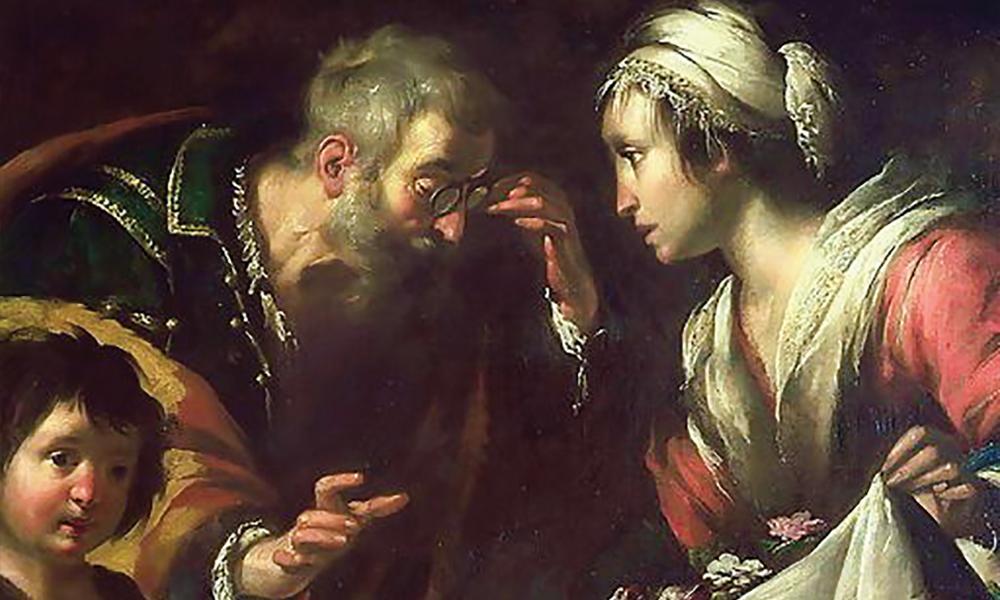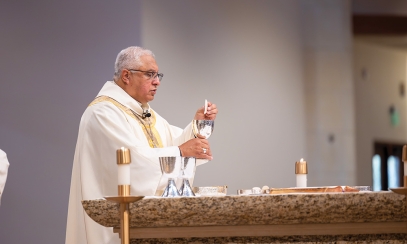
St. Zita was a diligent and faithful servant
Zita was a young, uneducated girl living with her family in Montesagrati, Italy, when her parents brought her to work as a servant for the wealthy Fatinelli family in Lucca.
Zita was a young, uneducated girl living with her family in Montesagrati, Italy, when her parents brought her to work as a servant for the wealthy Fatinelli family in Lucca.
She was only 12, but she learned to make her work as a domestic servant a blessing for this Italian wool and silk-weaving merchant and his family. Zita performed her domestic duties with diligence. Rev. Clifford Stevens writes in The One Year Book of Saints that she crept out of the house early every morning to attend Mass, as well as rising during the night to pray.
Her fellow servants looked upon her diligence as a form of snobbery aimed at them. Though she worked hard, prayed, went to Mass daily and gave away food and clothing, she received ill treatment from many of them and even from some of the Fatinelli family.
Zita believed that her work was part of her faith. She was known for her sunny demeanor and work ethic. After many years, she was appointed head housekeeper and put in charge of the children of the house. In her new position, she treated all with kindness and became respected by the whole household.
She also began to experience miracles. In The Encyclopedia of Saints Rosemary Guiley writes, “Zita had stayed in church too long one day and was late starting her baking. When she arrived home, she found loaves of bread prepared and neatly laid out in rows in the kitchen, ready to be baked.”
Another story describes her distribution of bread to the poor. Zita was smuggling bread from the Fatinelli home when a fellow servant told the mistress what she was doing. When the mistress stopped her, Zita pulled open her apron that she had filled with bread, but only flowers fell to the ground.
Sean Kelly and Rosemary Rogers write in Saints Preserve Us! that she received all kinds of help from the angels. When she was caught in the rain, angels kept her dry with their wings. When she gave her master’s fur cloak to a beggar, an angel brought it to her door the following day. In the city of Lucca, that door is still called “the Angel’s door.”
Zita visited prisons, the sick and poor and became a familiar figure in Lucca, and she was able to subdue the violent temper of Pagano di Fatinelli, head of the household. Editor Michael Walsh writes in Butler’s Lives of the Saints that she had a special devotion to criminals under sentence of death, on whose behalf she would spend hours in prayer.
On the night she died, April 27, 1278, a bright star shone from her attic window illuminating all of Lucca. Her fame spread, becoming closely associated with the town of Lucca. She was buried in the Church of St. Frediano in Lucca.
She was canonized in 1696, and in 1935 Pope Pius XI declared her principal patron saint of domestic servants. Every year on April 27, citizens of Lucca bake bread and bring flowers to San Frediano in celebration of her feast day. St. Zita pray for us!
Mary Lou Gibson is a freelance writer who loves to explore the lives of saints. She is a member of St. Austin Parish in Austin.



